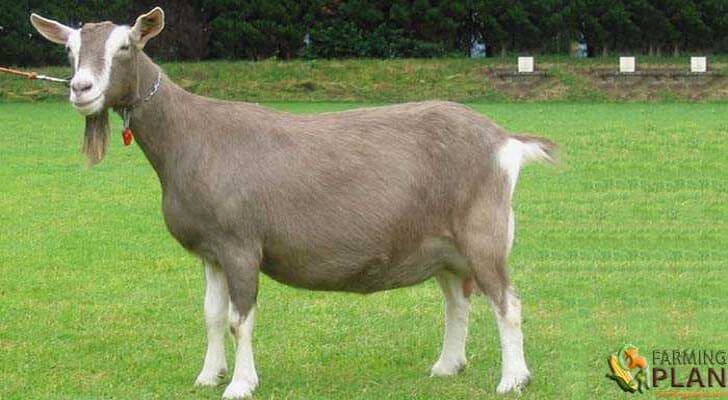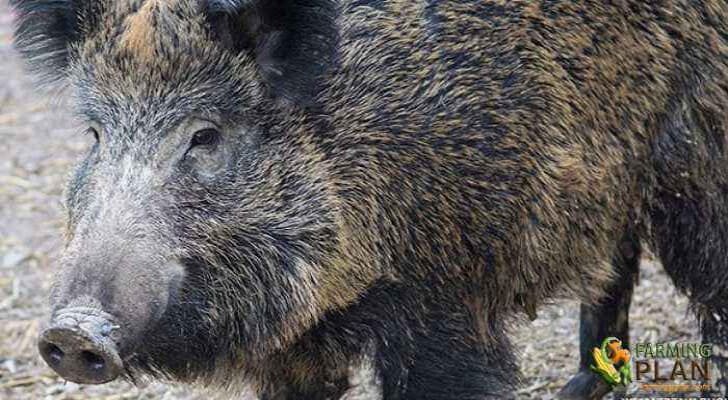Are you dreaming of raising Arles Merino Sheep on your farm? An ancient breed, the beautiful and hardy Arles Merino is renowned for its superior wool quality. Developed over centuries to withstand the hot climates of France’s Rhône Valley, they are an ideal choice for farmers looking for an easy-to-manage, rewarding sheep breed. Read on to learn more about these unique animals and how best to care for them in terms of their housing needs and husbandry techniques. If you’re considering a potentially lucrative partnership with this special breed of sheep – look no further! We’ll explore everything from pasture management considerations to medical issues embracing fertility and lambing procedures that are integral parts of our pastoral stewardship strategy. So if you’re wondering whether Arles Merinos could be the perfect fit for your smallholding or hobby farm – read on and prepare yourself as we jump into discovering all things merino-related!

History & Origin
The Arles Merino Sheep is a truly unique breed of sheep that has been around since the 11th century and originates from the Camargue region of southern France. This extraordinary breed is thought to be descended from the North African sheep and Spanish merinos and is noted for their distinctive white coat with black markings, which sets them apart from other types of sheep. Today, these merino sheep are considered an iconic symbol for Camargue, as well as a remarkable piece of history in the French countryside. The Arles Merino Sheep’s longevity has no doubt been due to its hardiness in grazing and adapting to its environment over many centuries – there is no doubt that this resilient breed will continue to thrive in years to come.
Characteristics
The Arles Merino Sheep is a truly unique breed of sheep native to the Camargue region in southern France. Showcasing their prominent white coat adorned with black, these special creatures also sport pure white legs, matching well with their fluffy woolen necks and belly. They’re considered hardy animals, possessing a courage that serves them well amongst predators both natural and human alike – excellent traits for a farm animal! They tend to have short heads with upright ears, along with rounded horns which allow them to distinguish themselves from other breeds of sheep. All in all, the distinct features and characteristics of the Arles Merino Sheep make it an unbeatable choice for farms seeking a hearty and reliable sheep breed.
Feed
The Arles Merino Sheep, a special breed native to the Camargue region of France, is famous for its white coat with black markings. These sheep require specialized feed that is tailored to their unique dietary needs to remain healthy and thrive. For centuries, the local farmers of Camargue have balanced elements such as hay, legumes, and cereal crops to provide affordable and nutritious food sources for their flock. Even today, many of these farmers continue to practice mineral supplementing during dry seasons when other traditional methods are less productive. As a result, Arles Merino Sheep enjoys robust health that helps assure the sustainability of this extraordinary breed.
Usage
The Arles Merino Sheep is a unique breed of sheep that has been used by farmers and shepherds in France for centuries. Its white hair and black markings make it easily recognizable amongst other breeds, but its particular characteristics go beyond appearance. This hardy animal has been historically bred in the Camargue region because of its adaptability to the environment – it was originally farmed as a source of wool and meat, but also served many farmers as herders or guardians against predators. Today, these beloved sheep continue to be an important part of rural French life in their home region, where they are admired for their sense of independence, sure-footedness, and ability to thrive even on harsh terrain.
Special Feature
The Arles Merino sheep is a unique and extraordinary breed, found only in the Camargue region of southern France. With an exceptionally long and fine wool coat, the Arles Merinos have been prized since their founding in 1500 for their exquisite texture and color- the only kind of sheep with a distinctively pure white coat contrasted with a black stripe on its back. They are also noted for their strong constitution and ability to survive the harsh Mediterranean climate- their thick winter coats protecting them from both heat and cold. Much sought after as breeding sheep for other flocks, the Arles Merinos boast an unforgettable beauty that sets them apart from any other merino breeds in the world.
Benefits of Arles Merino Sheep Farming
Arles Merino Sheep are not only a special breed of sheep due to their unique white and black coloring, but also a highly beneficial breed for farmers. These sheep have been steadily farmed in southern France for many years, providing a variety of benefits to their owners. The meat products produced by Arles Merino Sheep are very high quality, and the abundance of fleece produced by the sheep makes them an ideal choice for wool production. The hardiness of this breed means that farmers can count on having healthy, high-yielding animals with minimal effort. Therefore, when considering sheep farming, the Arles Merino Sheep is worth looking into.
Safety Regulations
Raising Arles Merino Sheep is a specialized endeavor that requires following rigorous safety guidelines to ensure the health and well-being of the animals. Eminent farmers must adhere to regulations that contribute to animal welfare, such as providing adequate shelter, rapid transport for investigation at veterinary clinics, and access to sufficient food and water. Veterinary practices should also prioritize enabling the sheep with sufficient guardianship including health assessments and vaccinations when needed. With suitable fencing and care measures in place, the Arles Merino Sheep can thrive in their homelands. By consistently implementing safety regulations, farmers of this unique breed can make sure they are well taken care of.
Costs Involved
One of the most difficult aspects of owning and running an Arles Merino Sheep farming operation is the associated costs. From housing and fencing provisions to shearing tools and feed, keeping Arles Merinos can prove expensive. Housing these sheep needs special consideration due to their particularly delicate coats – farmers must ensure that the temperature and humidity of the sheep’s environment are exactly right to maintain their coats’ good condition. The equipment required for keeping such a rare sheep species also can prove costly – although regular shearing helps to reduce this cost, quality shearing machines will add to initial expenses. Lastly, a steady supply of the feed needed by these particular sheep must be acquired at regular intervals as well. In conclusion, when preparing budgets for purchasing and maintaining an Arles Merino Sheep farm, it is essential to consider these associated costs.
Challenges
Arles Merino Sheep is a unique and distinct breed of sheep from the Camargue region in southern France. As farmers who keep these noble creatures, however, some issues may arise. The most common challenge is seasonal; some months can be incredibly hot or cold for the sheep, so vigilant owner should make sure their flock is exposed to enough shade and water during the warm season, as well as additional protection from the elements during the winter months. Aside from that, Arles Merino Sheep have different dietary requirements than other breeds. Keeping up with their grazing routine and having access to rich sources of nutrition is key to ensuring their health and well-being. Finally, predators can also be an issue when it comes to maintaining a flock of Arles Merino Sheep. Knowing which predators are active in one’s area and taking necessary precautions accordingly is essential for a successful sheep-keeping experience.
Tips For Successful Arles Merino Sheep Farming
The Arles Merino Sheep is a unique breed of sheep native to the Camargue region in southern France, and for those interested in raising these animals, several key tips must be followed for successful long-term results. From breeding strategies to disease prevention, understanding the particular needs of this breed is paramount. It’s important to note that regular pregnancies and careful ewe management must take place for very good reproduction rates, as well as effective vaccination against common diseases such as mastitis, endometritis, and foot rot which are key elements of a successful farming venture. With its distinctive white coat complemented by black markings along its head, neck, and legs, this breed provides farmers with an interesting new venture while allowing them to care for and enjoy the beauty of this ancient breed.
FAQ
Which country has the most Merino sheep?
Australia is home to the largest population of Merino sheep in the world, with approximately 80 million currently living or grazing in the country. According to Meat & Livestock Australia, Merinos account for 65% of all adult sheep shorn in Australia and can be found in both commercial flocks (51%) and pastoral flocks (49%).
What are Merino sheep good for?
Merino sheep are some of the most valuable and versatile animals in the world. For centuries, they have been prized for their premium wool which is renowned for its fineness, softness, and breathability. Merino wool is popularly used to make sweaters, scarves, socks, and many other items of clothing which can last decades with proper care.
What is the best Merino sheep?
The best Merino sheep is a debated topic as there are different factors to consider when choosing the “best” titled animal. However, with that being said, the Saxon Merino is widely accepted as one of the very best breeds of Merino sheep globally.
Conclusion
Raising Arles Merino Sheep is a rewarding task for any farmer looking to breed high-quality sheep with distinctive black-and-white coats. This breed is well known for its superior fleece production, which can be beneficial for agricultural purposes. As with all other animal agriculture activities, it is important to ensure the animals’ safety and well-being by following safety regulations and tips for successful breeding and managing. Additionally, farmers should consider the financial costs involved in housing, feeding, and equipping for an Arles Merino herd so that they may decide how financially viable of an endeavor this may be. With the right knowledge and resources in hand, anyone can have success in raising Arles Merino Sheep!


